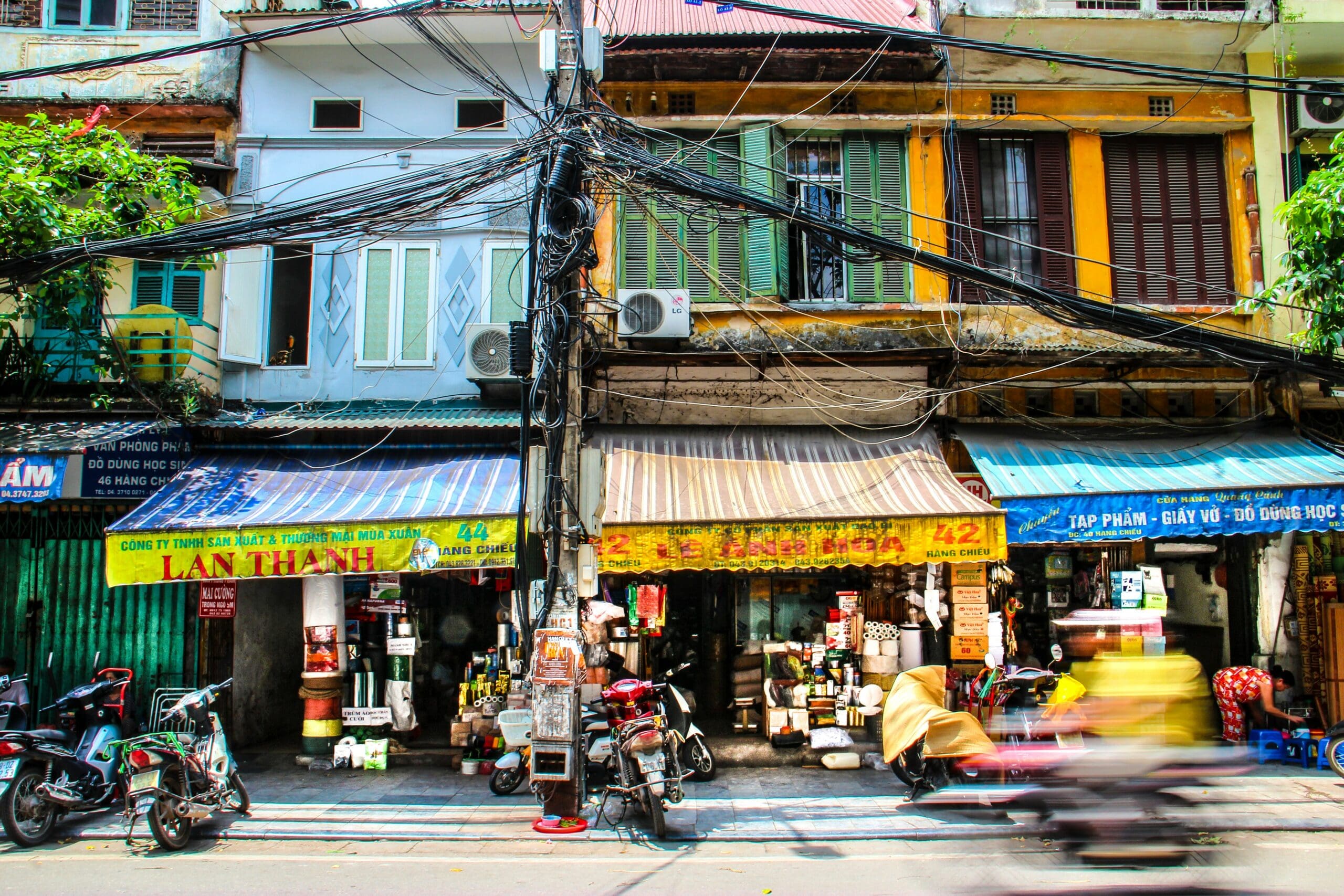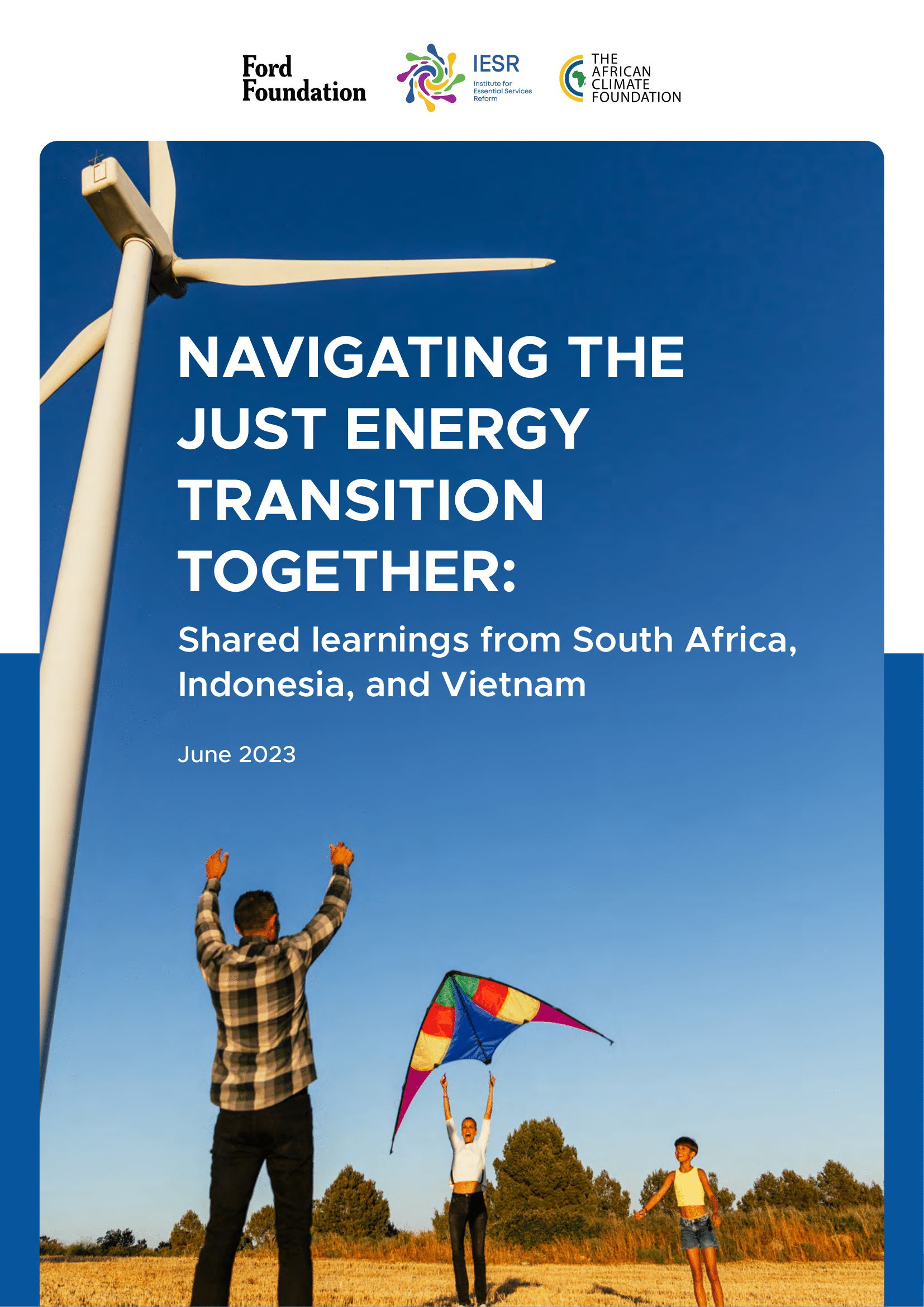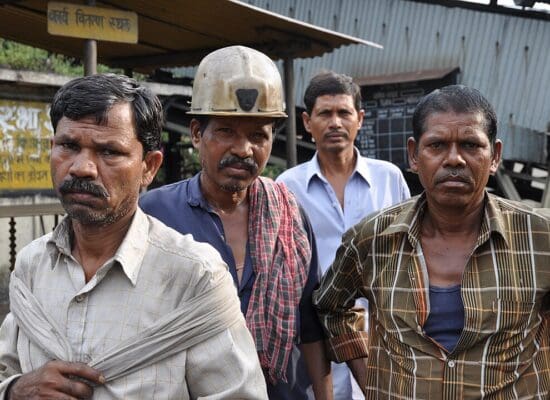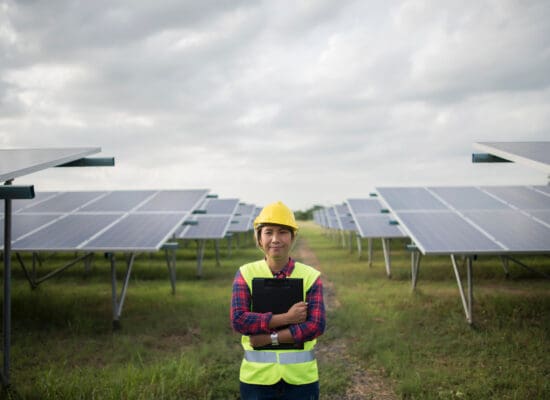Commentary
The Missing "Just" in Vietnam's Just Energy Transition Partnership
Country:
Vietnam,
Organisation:
International Rivers,
Vietnam Climate Defenders Coalition,

With its long coastline and low-lying river delta, Vietnam is ranked among the five countries likely to be most affected by climate change in the world and faces high risks of flooding and tropical cyclones. Vietnam’s economy is also among the fastest-growing in Southeast Asia, with energy demand projected to increase six times from 2020 to 2050 if current trends continue in relation to expanding resource-intensive export processing zones and data centres.
A time-bound, equitable, and full energy transition away from coal and towards decentralised renewable systems—in line with recommendations by the United Nations’ Intergovernmental Panel on Climate Change—would help to avert disastrous environmental, health, and livelihood consequences for people in Vietnam, while meeting the country’s growing energy needs.
Vietnam has made high-level commitments to address the climate crisis. In 2021, the country committed to reach net-zero by 2050. The following year, it entered into a just energy transition partnership (JETP) with the International Partners Group (IPG, comprising the G7, the European Union, Norway, and Denmark), which pledged USD 15.5 billion of initial financing. In line with the Paris Agreement and other international agreements, the “just” aspect of the JETP, which is reflected in the political declaration that established it, underscores the obligation of the decarbonisation process to address historic injustices without creating new harms.
The most urgent concern is the systematic silencing of local climate defenders who have spoken out against Vietnam’s continued dependence on fossil fuels.
Nonetheless, the “just” aspect appears to be largely excluded from Vietnam’s current JETP, jeopardising its implementation and success. A recent report—“The Missing “Just” in Vietnam’s Just Energy Transition Partnership (JETP)”—outlines the key concerns relating to the JETP’s financing, governance, energy solutions, and public participation. This detailed analysis, published by International Rivers and the Vietnam Climate Defenders Coalition, provides critical insights into ways forward that would enable Vietnam’s JETP to achieve its objectives and support a truly just energy transition for the country.
The most urgent concern is the systematic silencing of local climate defenders who have spoken out against Vietnam’s continued dependence on fossil fuels. Over the last few years, Vietnamese authorities have arrested and imprisoned six climate leaders and energy experts on questionable charges, handing out lengthy prison sentences based on harsh and punitive interpretations of the country’s ambiguous tax laws, and, more recently, criminalising access to information related to energy transition research and planning. These targeted arrests have occurred within the context of a wider crackdown on organisations working on environmental and energy issues in the country.
Currently serving a five-year sentence and facing inhumane treatment in prison is Đặng Đình Bách, lawyer and former director of the nonprofit Law and Policy of Sustainable Development Research Centre. Serving three years in prison is Hoàng Thị Minh Hồng, founder and former director of the nonprofit CHANGE Vietnam. Most recently, Vietnamese energy expert Ngô Thị Tố Nhiên, former executive director of the Vietnam Initiative for Energy Transition (VIETSE), was reportedly sentenced to three and a half years of imprisonment during a closed-door trial.
The targeted attacks on climate defenders and the resulting fear of reprisals among those concerned about energy and environmental issues in Vietnam are severely curtailing any genuine opportunities for meaningful engagement with civil society outside sanctioned associations affiliated with the government or business sectors. Without public participation, transition pathways risk replicating and exacerbating the current social, economic, environmental, and gender injustices, while failing to kickstart the required overhaul of infrastructure that is dependent on fossil fuels.
Without public participation, transition pathways risk replicating and exacerbating the current social, economic, environmental, and gender injustices, while failing to kickstart the required overhaul of infrastructure that is dependent on fossil fuels.
Other concerns about the country’s energy transition abound. The majority of the financing for the JETP has been offered in the form of market-rate loans rather than grants, defying the reparative logic inherent in current loss and damage negotiations and trapping Vietnam—and Vietnamese people—into debt.
Further, despite high-level commitments to transition away from coal, Vietnam does not have a concrete timeline for coal phase-out or a plan for retiring existing coal plants. What’s more, the country proposes to scale up carbon-intensive and environmentally destructive energy options associated with onerous economic costs, including reliance on imported liquified natural gas (LNG), hydropower expansion, and untested plans to convert coal plants to use biomass and ammonia.
Ultimately, this is a critical moment both for Vietnam and for JETPs as financing frameworks. In this context, the Vietnam Climate Defenders Coalition is calling for:
-
- the immediate release of the climate and environmental defenders unjustly imprisoned in Vietnam,
- the ability for civil society to participate freely and safely throughout the JETP planning and implementation processes, and
- the development of clear principles on “just transition” for JETPs, based on a broad participatory process and consistent with the international human rights obligations of government and business stakeholders and the safeguard policy commitments of financing institutions.
Detailed recommendations can be viewed at the end of the report.
Across the region and beyond, environmental and climate defenders are being criminalised and silenced. It is incumbent upon those engaged in international discussions around JETPs and climate financing to consistently highlight the unacceptable practice of jailing those who raise their voices for the future of humanity and the planetary commons and to call for an energy transition that values transparency, accountability, and consensus-building.
International Rivers is a non-profit organisation with staff in South Africa, Thailand, Brazil, China, India, and the United States that has a mission to protect rivers and defends the rights of communities that depend on them. Maureen Harris is senior advisor, Guneet Kaur is environmental defender campaign coordinator, and Tanya Lee Roberts-Davis is Southeast Asia senior energy campaign manager at International Rivers.
Stay Informed and Engaged
Subscribe to the Just Energy Transition in Coal Regions Knowledge Hub Newsletter
Receive updates on just energy transition news, insights, knowledge, and events directly in your inbox.


